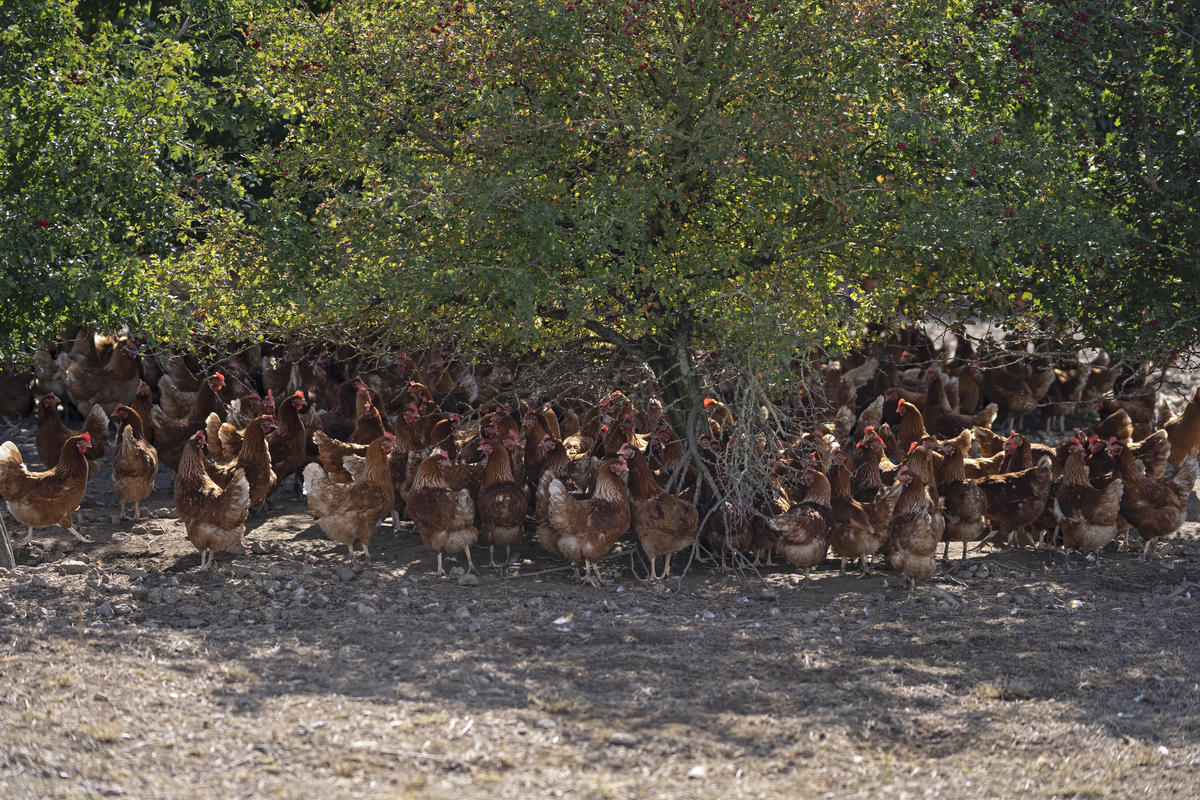Following ongoing monitoring and a robust risk assessment, avian influenza risk levels have been reduced. This means that poultry and other captive birds will no longer need to be housed and can be kept outside, unless they are in a protection zone.
Chief Veterinary Officer for Wales, Richard Irvine said: "I am pleased to be able to confirm the lifting of the compulsory housing order will take place in Wales on 18 April.
"I know this will be welcome news for bird keepers, who have housed their birds since December, and I want to thank them for all their efforts in keeping their flocks safe.
"What is essential now is that keepers, whether it be for a few birds or thousands, keep practicing rigorous hygiene and biosecurity measures to prevent outbreaks of avian influenza.
"This includes continuing to complete the mandatory biosecurity self-assessment checklist to help keepers identify what is needed to protect their birds.
"It’s also vital everyone remains vigilant for any signs of disease in their birds and wild birds, reports it and seeks advice immediately if they have any concerns."
Risk levels
The risk of incursion of HPAI (Highly Pathogenic Avian Influenza) in wild birds has been reduced to high.
The risk of incursion of HPAI in poultry with stringent biosecurity in place has been reduced to low.
The risk of incursion of HPAI in poultry with suboptimal biosecurity in place has been reduced to medium.
Measures for enhanced biosecurity
While the risk of avian influenza has been reduced to “medium” for premises with poor biosecurity, the enhanced biosecurity requirements that were bought in as part of the Avian Influenza Prevention Zone (AIPZ) will remain in force.
The risk of avian influenza remains assessed as “low”, where good biosecurity is applied.
Leading up to 18 April 2023, poultry keepers are urged to use the upcoming days to prepare their outside areas for the release of their birds. This will include cleansing and disinfection of hard surfaces, fencing off ponds or standing water and reintroduction of wild bird deterrents.
For poultry keepers in Wales, a mandatory biosecurity self-assessment checklist must be undertaken by all poultry and captive bird keepers. This can be found on at: GOV.WALES: Mandatory biosecurity self-assessment checklist
The Avian Influenza Prevention Zone (AIPZ), which covers all of Wales, remains in place. As before, this requires keepers of poultry and other captive birds to take appropriate and practicable steps to prevent avian influenza, including:
- Keeping kept birds off land that is known to be, or at high risk of being, frequented by wild waterfowl, or contaminated by their droppings or feathers.
- Ensure the areas where birds are kept are unattractive to wild birds, especially waterfowl, for example, by netting ponds and surrounding areas and by removing wild bird food sources;
- Feed and water birds in enclosed areas to discourage wild birds;
- Minimise movement of people in and out of bird enclosures;
- Clean and disinfect footwear, use foot dips before entering poultry enclosures, and keep areas where birds live clean and tidy;
- Ensure all bedding, equipment, clothing and anything else that enters the areas where birds are kept are free of direct or indirect contamination with HPAI, which is mainly spread through bird droppings.
- Keep domestic ducks and geese separate from other poultry.
Be vigilant
Poultry and captive bird keepers are advised to be vigilant for any signs of disease in their birds and any wild birds, and seek prompt advice from their vet if they have any concerns.
Public health advice remains that the risk to human health from the virus is very low and food standards bodies advise that avian influenzas pose a very low food safety risk for UK consumers.
There is no impact on the consumption of properly cooked poultry products including eggs.
If disease is suspected
Poultry and captive bird keepers and members of the public should report dead wild birds to the Defra helpline on 03459 33 55 77.
Bird keepers should report suspicion of disease in their birds, in Wales, to APHA on 0300 303 8268.
More information
Wales’ Chief Vet, Dr Richard Irvine has confirmed poultry & other captive birds can be let outdoors from 18 April.
— Welsh Government Rural Affairs (@WGRural) April 11, 2023
However, the #BirdFlu threat remains so keepers must continue to practice enhanced biosecurity measures & complete the mandatory checklist.https://t.co/2q1GnD3xAu pic.twitter.com/h1xTYymoW7
Keepers can familiarise themselves with avian flu advice on the Welsh Government’s website at www.gov.wales/avian-influenza.
